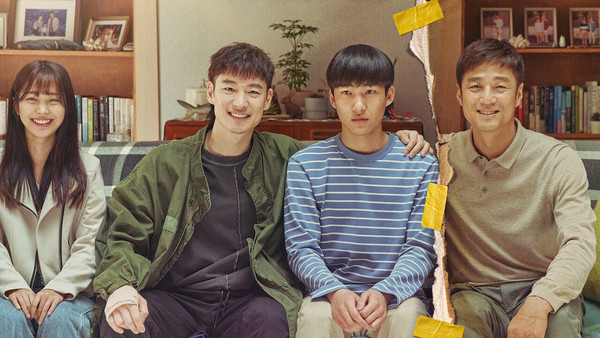Have you ever wondered, “who cleans up after those who die alone?” or “what happens to the things they leave behind?” Released in May, Move to Heaven is a Korean Netflix original that may offer you some answers. The show follows a team of trauma cleaners who cleans out the rooms of the deceased, and reveals the stories they could not tell themselves — not only because of the abruptness of their death, but also because no one was willing to listen while they were alive. The show cleverly sets Geuru (Jun-sang Tang), a boy with Asperger's syndrome, as the main character. He is able to connect the clues the deceased leave behind, put his own emotions aside, and speak for them based on facts, making him the perfect spokesperson.

Though it is a short series with only ten episodes, Move to Heaven successfully tackles a wide variety of social issues. The innocent intention of Geuru and his team, which is simply to bring what’s left behind to those who they should now belong to, often ends up revealing hushed truths or delivering unspoken emotions. From a young factory worker whose death was caused by a machine malfunction and kept secret by the authorities, to a father who cares only about hiding his son’s homosexual relationship should it hurt his reputation, the show brings to light a variety of topics that are actively silenced. Meanwhile, a few episodes also deal with issues that are not necessarily hushed, but are not mentioned enough. An international adoptee whose adoption is dissolved at a young age never finds home in either Korea or the US even after decades, while in a different part of the country, an old caretaker who is wrongfully fired commits suicide with his sick wife. These episodes point out the defects in our laws and systems that leave some people out of its protection.
Since the series is a collection of multiple short stories, watching a wide range of actors take the lead for each episode is also part of the show’s charm. While some well-known and experienced actors like Lee Jae-wook or renowned child actress Lee Re played some of the small roles, a good few of the episodes were centered around lesser-known actors who surprisingly met high standards of acting skills. For instance, singer-songwriter Kevin Oh made his acting debut as the international adoptee, Matthew Green. Though his character’s lack of proficiency in Korean allowed him but a few lines, the emotions he conveyed through the way he looked at his long-lost mother was beyond what would be expected of a first-timer. Whether it was intended or not, casting talented rookies amplified the viewers’ emotional engagement with the stories of literal strangers whose faces we are not too familiar with.
However, though the societal issues covered by each episode are varied, the repetition of the plot structure later becomes somewhat predictable and boring. To effectively convey the message the show focuses on, all stories must be tragic yet warm, and tear-jerking yet have some kind of a happy ending. Additionally, the show uses the same token characters typical in heartfelt Korean dramas. Geuru’s uncle, who is wild and audacious in the beginning “actually turns out to be a nice guy”, and Geuru’s best friend Namu is a girl who unconditionally stays by his side and helps him in crises. The same character composition is found in other Korean films and series whose main characters are mentally disabled, like in Inseparable Bros (2019) or Keys to the Hearth (2018). While the series was critically acclaimed for being different from typical and popular K-dramas for the issues it deals with, the way they are portrayed seemed not to be too different from the cliched format of similar shows.
Everyone dies. No one, in the hundreds of thousands of years of human history, has been able to defy this unchanging course of nature (despite some notable efforts). If we must, we’d all rather imagine a peaceful and painless death, with enough time to say our goodbyes to loved ones. We’d like to think that dying a lonely and unexpected death is something that will not apply to us. But this is why it is easy to disregard it as someone else’s problem, and this is why Move to Heaven, a show that speaks of the uncomfortable topic, is a wake-up call this society needs.

